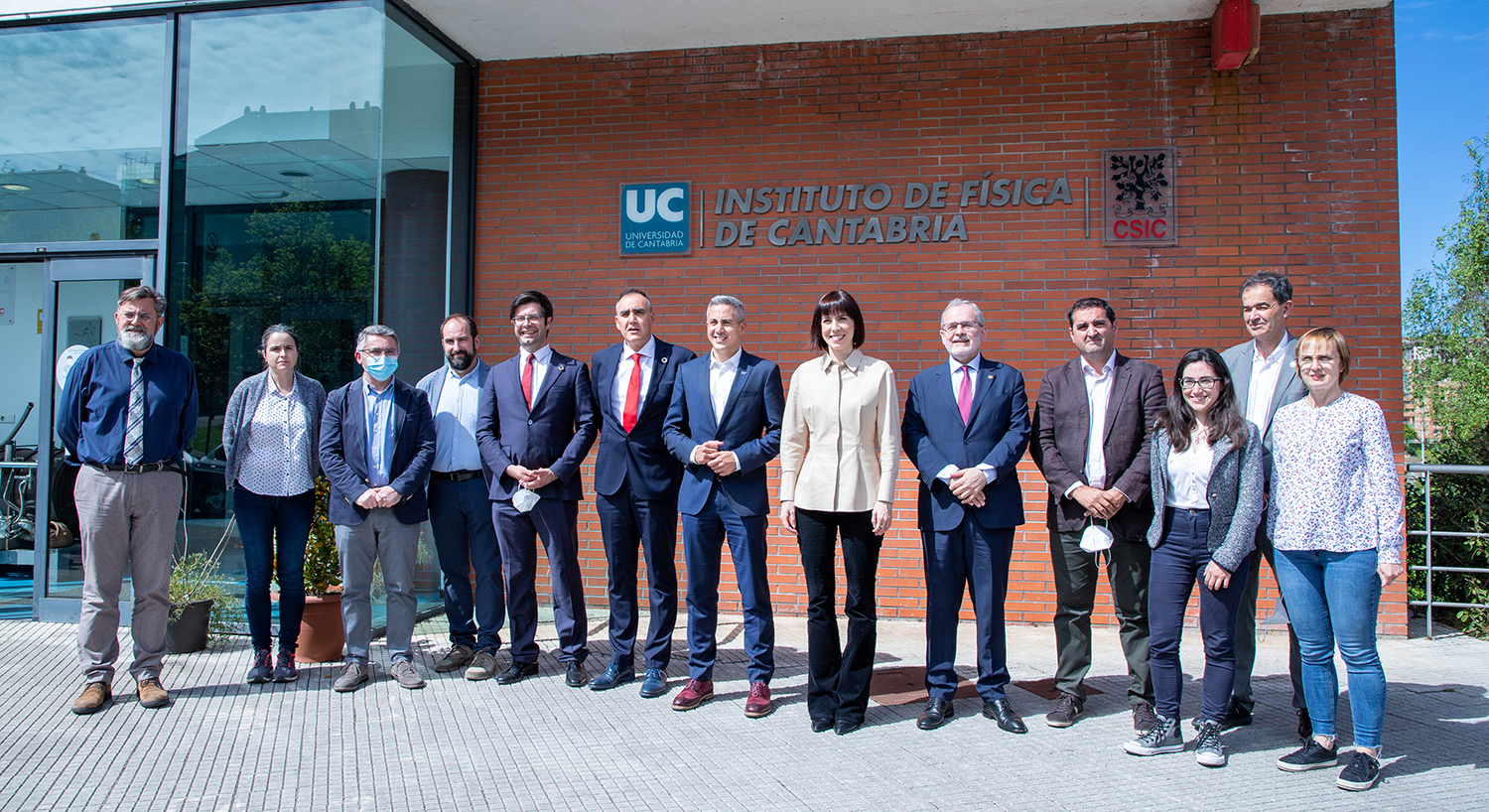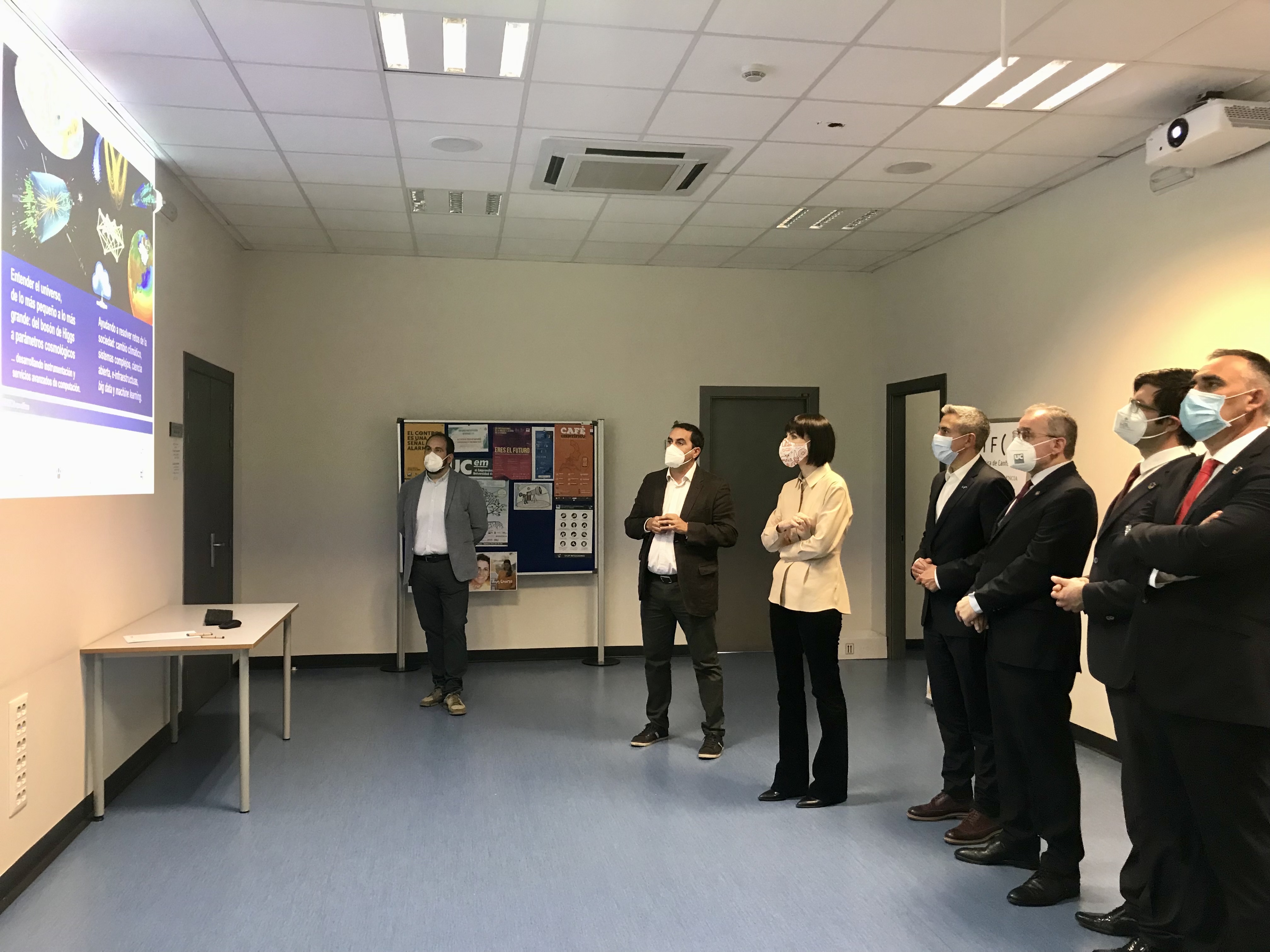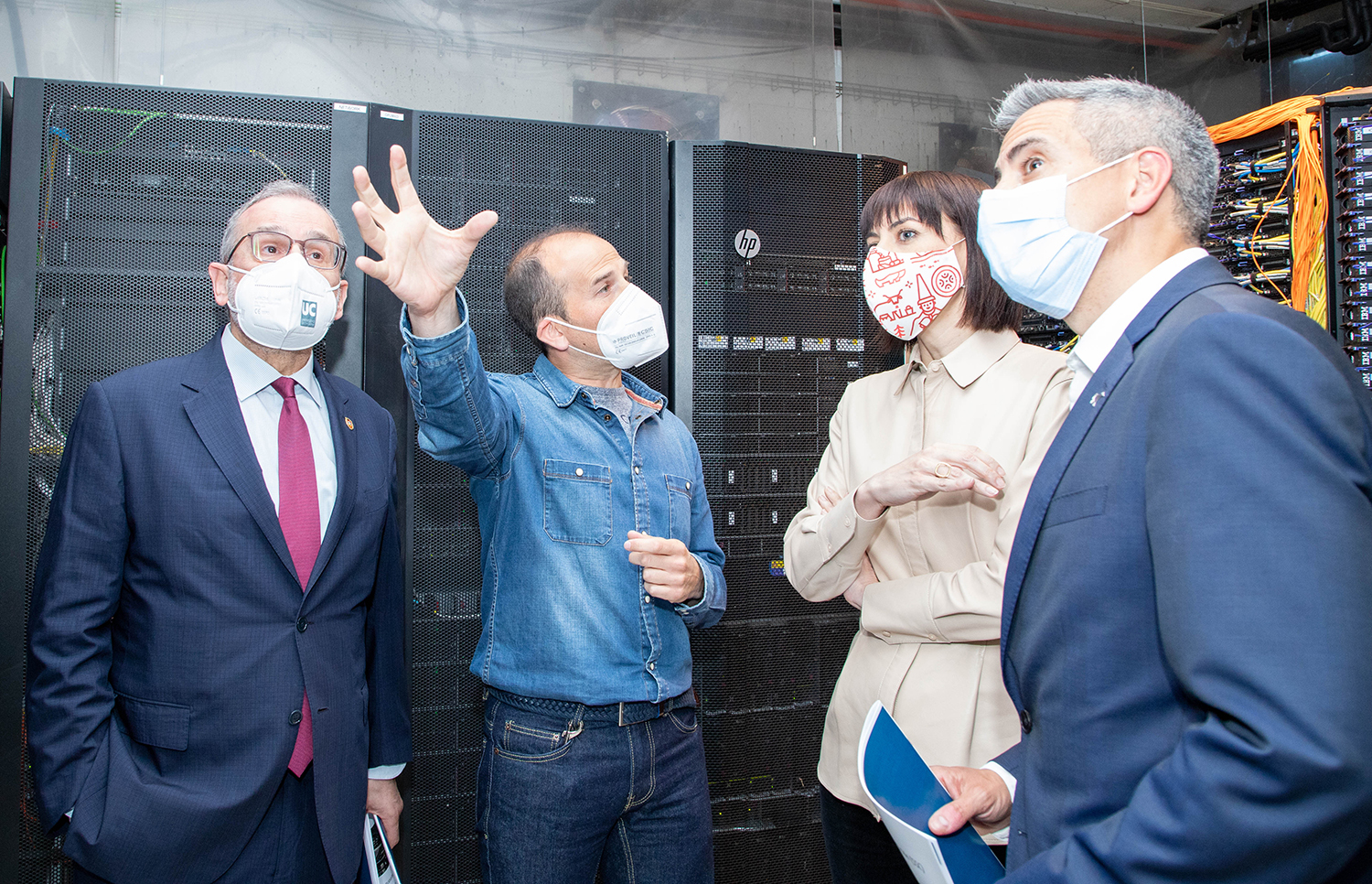
With the aim to strengthen the infrastructure of the institute, the installation of a tool focused on the detection of dark matter will contribute to other lines of research in astrophysics and particle physics
April 13, 2022
Within the Complementary R+D+i Plan financed by NEXTGEN funds from the European Union, a proposal in which IFCA participates entitled 'Advanced Technologies for the exploration of the Universe and its Components' has been chosen by the Ministry of Science and Innovation, led by Diana Morant, who visited the institute today. It is a collaborative proposal with other autonomous communities in these study areas: Aragon, Andalusia, Balearic Islands, Catalonia and Valencia.
These funds have as objective the creation of a cryogenic facility at IFCA for the development and characterization of quantum sensors focused on the detection of dark matter. It is a unique facility in Cantabria that allows one of the most important challenges in current science to be addressed, such as the study of the nature of dark matter, adopting a multidisciplinary perspective by bringing together different scientific and technological areas. This facility will be used in the characterization of quantum sensors that are developed within the framework of the CSIC cross-disciplinary interdisciplinary platform in quantum technologies QTEP.
One of the projects that will benefit from this facility is the Canfranc Axion Detection Experiment, CADEx, which is currently being evaluated to be developed in the Canfranc underground laboratory (Huesca).

Support for other research lines
This program will allow the promotion of other projects with a marked technological nuance within particle physics and astrophysics. In particular, the development of particle physics detectors for future colliding experiments and their transfer to the industrial fabric, including the field of nuclear medical physics, will be financed. In the field of astrophysics, progress will be made in large astronomical surveys that will allow the study of large volumes of the universe at different wavelengths, answering such fundamental questions as what is the origin of the universe (JAXA's LiteBIRD mission), what is the nature of the dark energy that governs its current accelerated expansion (J-PAS experiment), or how galaxies formed and evolved (ESA's Athena mission), which are the fundamental building blocks of the large-scale structure.
In addition, for the handling of the large amounts of data required by these projects, a portion of these funds will be used to promote IFCA's synergistic activity in Data Science and the improvement of the computing infrastructure of IFCA, which houses the ALTAMIRA node of the National Supercomputing Network (RES), a Singular Scientific-Technical Facility (ICTS) of the Ministry of Science which the Minister visited this afternoon.

Supplementary plans
The Ministry of Science and Innovation has nearly 100 million euros available each year to tackle cooperative research projects between autonomous communities, known as Complementary Plans, which will be received on this occasion by both the IFCA and the Spanish Institute of Oceanography (IEO) or the Institute of Environmental Hydraulics (IH) in the Cantabrian region.
